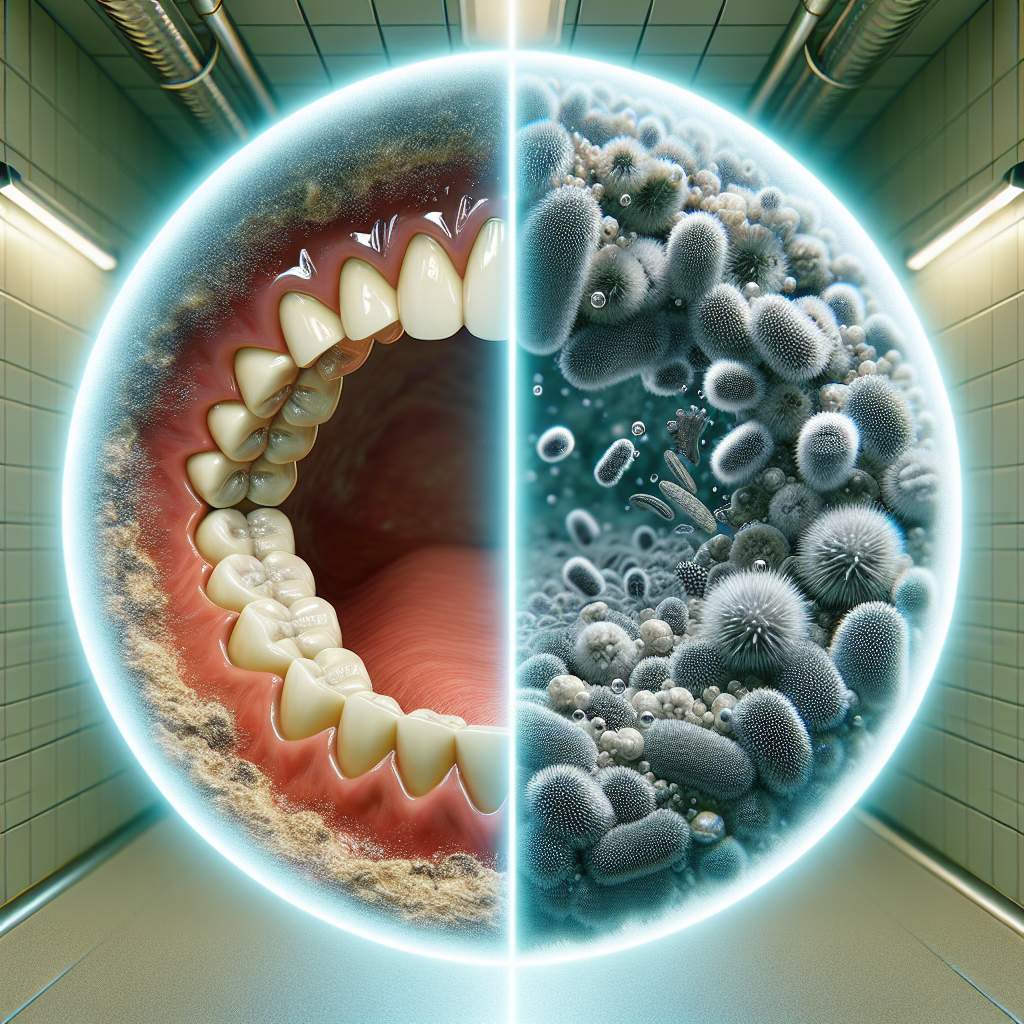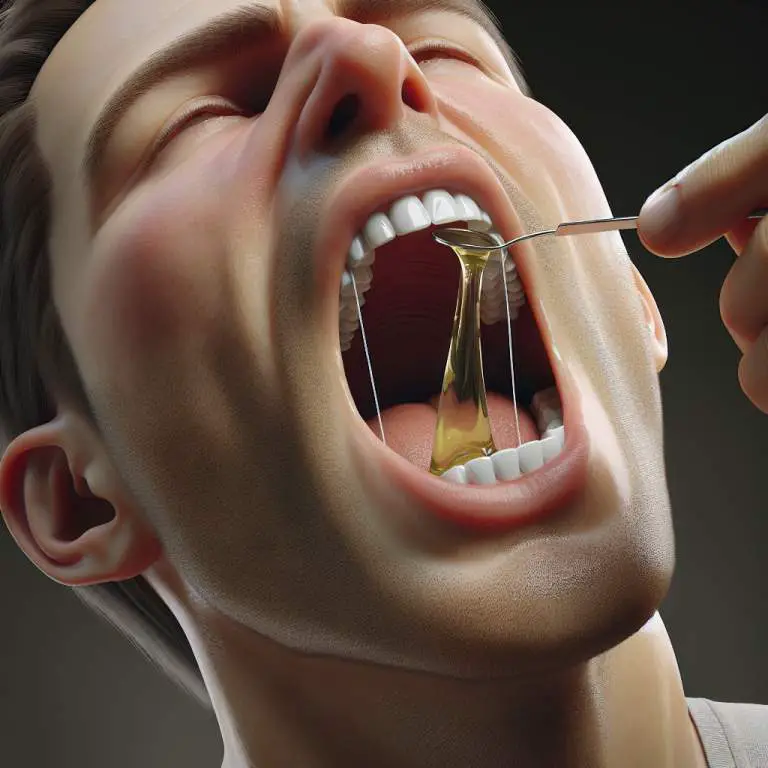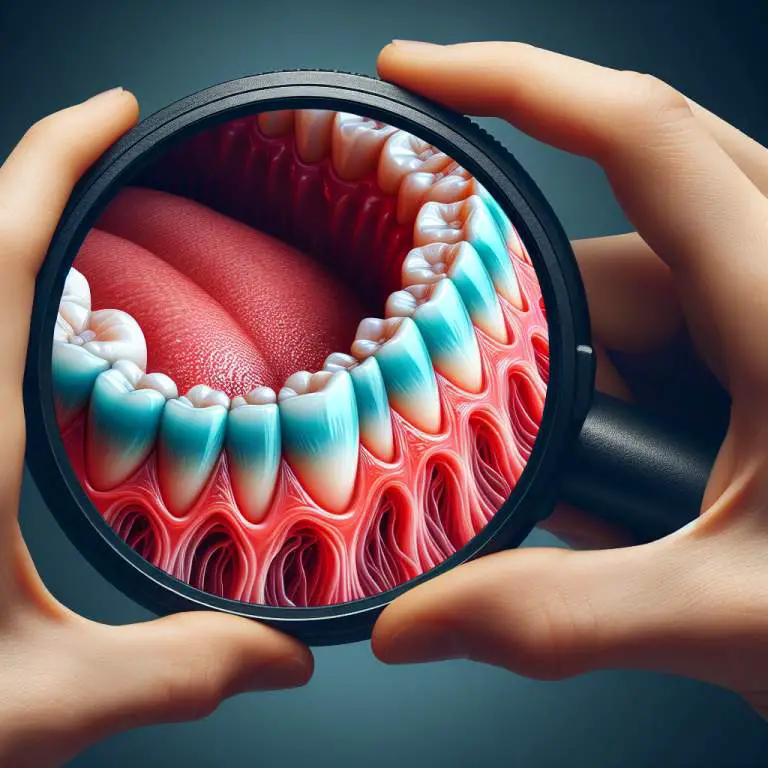How does oil pulling influence oral bacteria and plaque?
Oil pulling can help you fight off bad bacteria in your mouth and reduce plaque. When you swish oil around in your mouth, it pulls bacteria away from your teeth and gums. This can lead to less plaque, which is a sticky film of bacteria on your teeth. So, oil pulling might be a good way to keep your mouth clean and healthy.

How does oil pulling influence oral bacteria and plaque?
When you swish oil around in your mouth, it acts like a magnet for bacteria and plaque. These are the tiny bits that stick to your teeth and gums, causing problems if they’re not cleaned away. The oil pulls these out from the nooks and crannies of your mouth, leaving your mouth feeling cleaner.
As you continue to swish the oil, it gets mixed with your saliva, making a thick, white mixture. This process helps in breaking down the bacteria and plaque. After you spit the oil out, a lot of the unwanted stuff goes with it. This can lead to healthier gums and less plaque on your teeth over time.
What types of oil are best for oil pulling?
Coconut oil is a popular choice for oil pulling because it has a pleasant taste and is packed with health benefits. It contains lauric acid, which is known for its ability to kill harmful bacteria and reduce inflammation. Sesame oil is another good option. It’s been used for this purpose for thousands of years, especially in Ayurvedic practices. It’s known for its ability to reduce plaque and boost oral health.
Some people also use sunflower or olive oil for oil pulling. These oils are easier to find and might already be in your kitchen. The key is to use a high-quality, unrefined oil, no matter which type you choose. This ensures you’re getting the most benefits without any added chemicals.
How long should you do oil pulling for it to be effective?
For oil pulling to be effective, you should aim for about 15 to 20 minutes per session. This might seem like a long time, but it’s necessary to give the oil enough time to bind with the bacteria and plaque. You can do this while you’re doing other morning routines, like taking a shower or getting dressed, to make the time pass faster.
It’s important to swish the oil gently. If you do it too hard, your jaw might start to hurt. Starting with just 5 minutes and gradually increasing the time can help your jaw muscles get used to the activity. Doing oil pulling on an empty stomach, typically in the morning before you eat or drink anything, is often recommended for the best results.
Can oil pulling replace brushing and flossing?
While oil pulling can be a great addition to your oral hygiene routine, it should not replace brushing and flossing. Brushing with toothpaste cleans the surfaces of your teeth and flossing gets between them. Both are important for removing plaque and preventing cavities. Oil pulling works by removing bacteria and can help reduce plaque, but it doesn’t physically scrub your teeth.
Think of oil pulling as a supplement to your existing routine. It can help improve your oral health when used along with regular brushing and flossing. Remember, the best way to keep your mouth healthy is to follow a comprehensive oral hygiene plan that includes brushing twice a day, flossing daily, and regular visits to the dentist.
| Effect | Description | How It Works |
|---|---|---|
| Reduces Bacteria | Oil pulling can lower the number of harmful bacteria in your mouth. | The oil sticks to the bacteria and pulls them away from your gums, teeth, and tongue when you spit it out. |
| Decreases Plaque | Less bacteria means less plaque forming on your teeth. | By removing bacteria, oil pulling helps prevent plaque buildup, keeping your teeth cleaner. |
| Improves Breath | Getting rid of bacteria can also make your breath smell better. | Since many bad breath issues come from bacteria, removing these can freshen your breath. |
| Boosts Gum Health | Healthier gums are a result of less bacteria and plaque. | With fewer bacteria attacking your gums, they can become stronger and healthier. |
What are the scientific studies saying about oil pulling and oral health?
Many scientists have looked into oil pulling to see how it helps your teeth and gums. They found that it can lower the amount of bad bacteria in your mouth. This is good news because too much bad bacteria can lead to problems like cavities and gum disease.
Studies also show that oil pulling can reduce plaque and gingivitis. Plaque is a sticky film on your teeth that can cause cavities, and gingivitis is when your gums get red and swollen. So, keeping these two things under control is important for a healthy mouth.
How does oil pulling compare to traditional mouthwash?
When you compare oil pulling to using mouthwash, both can help keep your mouth clean, but they work in different ways. Oil pulling is natural and doesn’t have any chemicals, while most mouthwashes have antiseptic ingredients to kill bacteria.
Some people find that oil pulling is gentler on their mouths than mouthwash. Mouthwash can sometimes cause a burning feeling or dry out your mouth. But remember, oil pulling takes longer, about 15 to 20 minutes, while mouthwash only takes a minute or two.
Are there any risks or side effects to oil pulling?
Oil pulling is safe for most people, but there are a few things to watch out for. If you do it too much or use too much oil, you might get an upset stomach. Also, make sure you don’t swallow the oil because it’s full of bacteria from your mouth.
Some people might be allergic to the oil they’re using, like coconut or sesame oil. If you notice your mouth or throat getting itchy or swollen, you should stop oil pulling and talk to a doctor. But these problems are not very common.
Final Thoughts
Oil pulling can be a good addition to your daily oral care routine. It’s a natural way to help keep your mouth healthy, but it shouldn’t replace brushing and flossing. Those are still the best ways to clean your teeth and gums every day.
Remember, if you’re thinking about trying oil pulling, it’s a good idea to talk to your dentist first. They can give you advice on how to do it safely and tell you if it’s a good choice for you. Keeping your mouth healthy is important, and there are many ways to do it.







